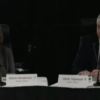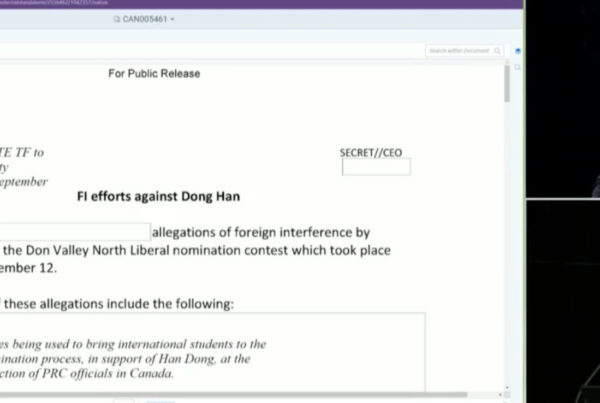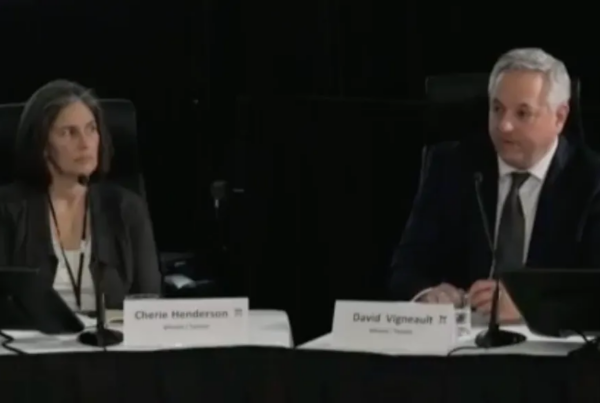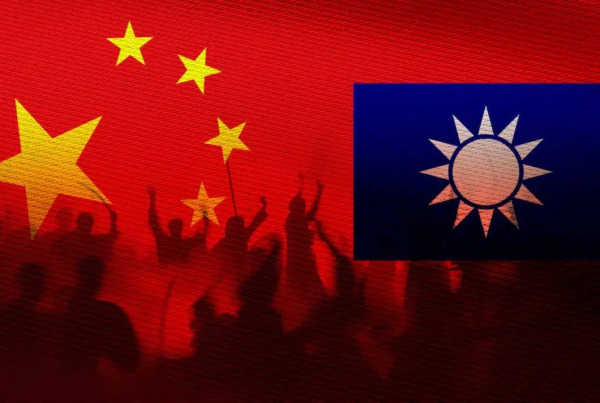You can’t keep a good man down; nor a bad one either. In a season of impending war during a time when it is obvious that evil must be confronted, it was inevitable that Western pacifist sentiments would lurch back into public view.
As a showdown with the tyrant of Iraq looms near; it was only a matter of time before the usual ill-informed luminaries came out to tell us that war is immoral, our cause is unjust, and our purposes are ill-conceived. Pierre Burton, June Callwood, Margaret Atwood, Svend Robinson and a galaxy of other “progressives” are behind this latest effort in Canada. A similar chorus has appeared elsewhere.
It is difficult to think of any intellectual movement that has been more muddled and more wrong than Western pacifism. Look at the record.
During the American Civil War, “Peace Democrats” denounced the war, declared the South was unbeatable and urged the United States to accept the existence of an Independent Confederacy. Fortunately for America (and all of humanity), Abraham Lincoln was a man of rare vision, strong principles and a better sense of what was possible than his critics.
In the 1930s, Pacifists urged policies of appeasement with Hitler and passed declarations that it was immoral to fight in self-defence. Their views held wide currency in Britain and France; whose subsequent infirmity in confronting the Nazi leader’s bullying let Hitler get away with murder and only increased his contempt for the Western democracies. After the war it became clear that had he been resolutely opposed when re-occupying the Rhineland, when moving into Austria, or when menacing Czechoslovakia, Hitler would have backed down.
Once the Second World War began, it also says much that Western Communist Parties continued to denounce the Allied war effort… right up until the Germans invaded the USSR.
That strange linkage between Pacifism and the Soviets would pop up after World War Two; when Moscow’s truculence initiated the Cold War. A dual standard rapidly emerged as Western actions (like creating defensive Alliances or deploying new weapons) were judged far more harshly than Soviet actions – when such were considered at all.
In the aftermath of the collapse of the Soviet Union, many details have emerged about Soviet use of front groups like the World Peace Council — whose leader, Romesh Chandra, always denied Soviet influence and funding until 1989, when it turned out as much as 90% of its funding came from Moscow. The WPC and other fronts were coupled with KGB support for many national “Peace Movements”. Naturally, various national Communist Parties also ensured there were many voices in the Movement to promote nothing but one-sided perspectives. The majority of Pacifists, naïve to the last, followed along obligingly. With a 50-year record of playing patsy for a murderous foreign power, it would be a mistake to ever trust their impartiality.
The Peace Movement also insisted “the violence would end” in Vietnam as soon as the Americans left. Actually, the pace of killing accelerated to nightmarish levels after the US pullout – when the ideologues of North Vietnam and Cambodia could finally impose their unchallenged will on the peoples of the region. The Americans were only responsible for a fraction of the 5 million deaths in the region; and the murderous impulses of the local ideologues appeared long before the first US troops showed up.
Not undaunted by their uncontested series of errors, the Peace Movement insisted that the Western Arms buildup of the 1980s would lead to a Nuclear Arms Race (forgetting that this had already peaked in the early 60s and that stockpiles were dwindling since the Cuban Missile Crisis). They also insisted that the West was wrong to “provoke” the Soviets by meeting the latter’s massive conventional arms build-up that had begun in the 1970s. What actually happened was that the Soviets were deterred from acting aggressively as their Empire crashed, and the Western powers developed a military — armed with weaponry that supposedly wouldn’t work anyway — that crushed an Iraqi military trained and armed on Soviet lines.
Oh, and Western Pacifists also opposed the 1991 Gulf War. They said that the Gulf War was immoral (remember the slogan “No Blood for Oil”); bound to cause tens of thousands of Allied casualties; and that it would be best to use sanctions and diplomacy with Saddam Hussein. Lest we forget, many of the same voices urged restraint with the Taliban in Afghanistan last year, and with Milosevic before that.
The one time a strong Western Pacifist movement would have been useful in opposing a war, they were too busy backing it. A vast majority of the socialists and chattering classes who usually back the movement were patriotically cheering the troops onwards to immolation in the trenches in 1914. Only a tiny handful – like Bertrand Russell – actively opposed the war in its earliest days.
As Western Pacifists resurface in 2002 to oppose the war with Iraq; they do so with all their usual characteristics intact. They see self-defence as immoral; hold double standards of right and wrong; and refuse to let the facts interfere with their own notions of morality. But, with such a glorious record of error, at least they can take comfort that their Olympian ideals mean they never have to say they were wrong – or sorry.








